Hounde, Jul 28: Coronavirus and its restrictions are pushing already hungry communities over the edge, killing an estimated 10,000 more young children a month as meager farms are cut off from markets and villages are isolated from food and medical aid, the United Nations warned Monday.
In the call to action shared with The Associated Press ahead of publication, four UN agencies warned that growing malnutrition would have long-term consequences, transforming individual tragedies into a generational catastrophe.
Hunger is already stalking Haboue Solange Boue, an infant from Burkina Faso who lost half her former body weight of 5.5 pounds (2.5 kilograms) in just a month. Coronavirus restrictions closed the markets, and her family sold fewer vegetables. Her mother was too malnourished to nurse.
“My child,” Danssanin Lanizou whispered, choking back tears as she unwrapped a blanket to reveal her baby's protruding ribs.
More than 550,000 additional children each month are being struck by what is called wasting, according to the UN — malnutrition that manifests in spindly limbs and distended bellies. Over a year, that's up 6.7 million from last year's total of 47 million. Wasting and stunting can permanently damage children physically and mentally.
“The food security effects of the COVID crisis are going to reflect many years from now,” said Dr. Francesco Branca, the WHO head of nutrition. “There is going to be a societal effect.”
From Latin America to South Asia to sub-Saharan Africa, more poor families than ever are staring down a future without enough food.
In April, World Food Program head David Beasley warned that the coronavirus economy would cause global famines “of biblical proportions” this year. There are different stages of what is known as food insecurity; famine is officially declared when, along with other measures, 30% of the population suffers from wasting.
The World Food Program estimated in February that one Venezuelan in three was already going hungry, as inflation rendered salaries nearly worthless and forced millions to flee abroad. Then the virus arrived.
“Every day we receive a malnourished child,” said Dr. Francisco Nieto, who works in a hospital in the border state of Tachira.
In May, Nieto recalled, after two months of quarantine, 18-month-old twins arrived with bodies bloated from malnutrition. The children's mother was jobless and living with her own mother. She told the doctor she fed them only a simple drink made with boiled bananas.
“Not even a cracker? Some chicken?” he asked.
“Nothing,” the children's grandmother responded. By the time the doctor saw them, it was too late: One boy died eight days later.
The leaders of four international agencies — the World Health Organization, UNICEF, the World Food Program and the Food and Agriculture Organization — have called for at least dollar 2.4 billion immediately to address global hunger.
But even more than lack of money, restrictions on movement have prevented families from seeking treatment, said Victor Aguayo, the head of UNICEF's nutrition program.
“By having schools closed, by having primary health care services disrupted, by having nutritional programs dysfunctional, we are also creating harm,” Aguayo said. He cited as an example the near-global suspension of Vitamin A supplements, which are a crucial way to bolster developing immune systems.
In Afghanistan, movement restrictions prevent families from bringing their malnourished children to hospitals for food and aid just when they need it most. The Indira Gandhi hospital in the capital, Kabul, has seen only three or four malnourished children, said specialist Nematullah Amiri. Last year, there were 10 times as many.
Because the children don't come in, there's no way to know for certain the scale of the problem, but a recent study by Johns Hopkins University indicated an additional 13,000 Afghans younger than 5 could die.
Afghanistan is now in a red zone of hunger, with severe childhood malnutrition spiking from 690,000 in January to 780,000 — a 13% increase, according to UNICEF.
In Yemen, restrictions on movement have blocked aid distribution, along with the stalling of salaries and price hikes. The Arab world's poorest country is suffering further from a fall in remittances and a drop in funding from humanitarian agencies.
Yemen is now on the brink of famine, according to the Famine Early Warning Systems Network, which uses surveys, satellite data and weather mapping to pinpoint places most in need.
Some of the worst hunger still occurs in sub-Saharan Africa. In Sudan, 9.6 million people live from one meal to the next — a 65% increase from the same time last year.
Lockdowns across Sudanese provinces, as around the world, have dried up work and incomes for millions. With inflation hitting 136%, prices for basic goods have more than tripled.
“It has never been easy but now we are starving, eating grass, weeds, just plants from the earth,” said Ibrahim Youssef, director of the Kalma camp for internally displaced people in war-ravaged south Darfur.
Adam Haroun, an official in the Krinding camp in west Darfur, recorded nine deaths linked with malnutrition, otherwise a rare occurrence, over the past two months — five newborns and four older adults, he said.
Before the pandemic and lockdown, the Abdullah family ate three meals a day, sometimes with bread, or they'd add butter to porridge. Now they are down to just one meal of “millet porridge” — water mixed with grain. Zakaria Yehia Abdullah, a farmer now at Krinding, said the hunger is showing “in my children's faces.”
“I don't have the basics I need to survive,” said the 67-year-old, who who hasn't worked the fields since April. “That means the 10 people counting on me can't survive either.”

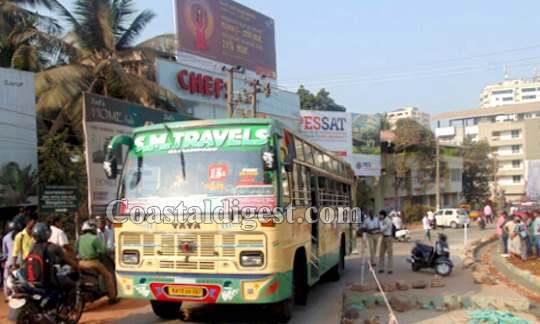
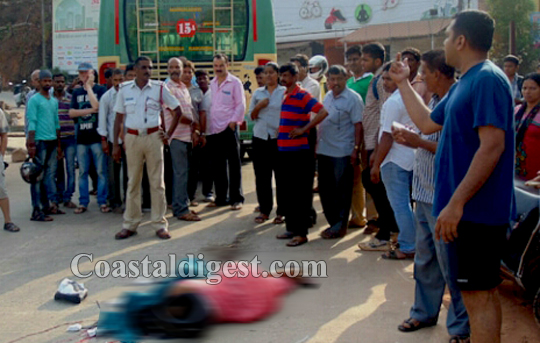

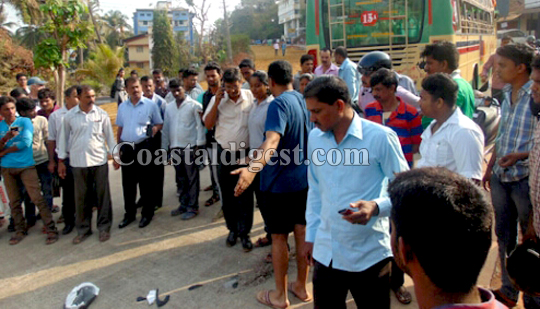
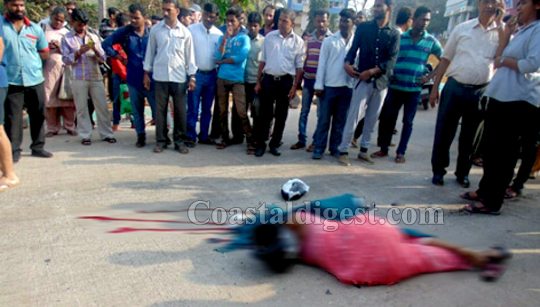
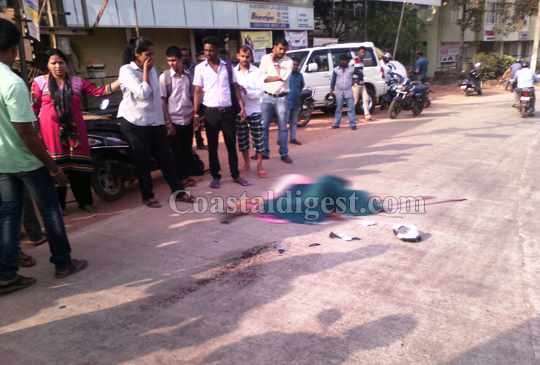





Comments
All that is on earth will perish, but face of your Lord will abide (forever) full of majesty, bounty and honor - Holy Qur'an 55:26-27
Nobody like rulers, bureaucrat or any citizen is bothered or cares such accident specially in Mangalore.
Human lives have no value specially for 2wheelers.
We are talking many projects in our area.
This is daily disaster. If we wish we can prevent such accidents with some good planning.
Such accidents are not UNPREVENTABLE.
If we want to allow our people to use 2wheelers, first we should plant to prevent and how to escape from these accidents.
Otherwise we all should by law or by force avoid using such vehicles.
At least our leaders in the city like DC, SP, RTO, MP, MLAs, Ministers, all those who use 2wheeler, please wake up and do the doable thing to save our people's lives.
Sad incident....... RIP
RIP... Feeling very sad... :-(
we CONDOLE but anybody thinking about death and do GOOD and stop evil... those who do good & recognise the true CREATOR, and submit to him to find the everlasting heaven.. which is the gift that God gives those who recognize him & follow his & his prophet's command..
My heartfelt condolences to you and your family. I will surely miss the presence of a truly loveable and kind person.
I am deeply saddened by the loss that you and your family have encountered. My condolences
It’s terrible to hear about, my sincere sympathy to your family.
this bus drivers are very rude on the road, put him behind bar for atleast 20years. he is a real murderer.
You and your family are in our prayers. Sorry to hear of your loss mam.
Our hearts are saddened by your loss and our thoughts and prayers are with you
My deepest condolences for your family's loss.
really sad, she s one of the good lecture in our college, we really gona miss her a alot. love u mam
Heartfelt condolence to the family, nobody can pay the loss to the family.
JESUS SAID :
The father is greater than I - John 14:28
The Lord our God is ONE LORD - Mark 12:29
By myself I can do nothing - John 5:30
I ascend to my Father & Your Father - John 20:17
PAUL SAID :
Jesus is equal to the father
God exists as 3 persons
Jesus is all powerful
Jesus is the only son of God..
Recognize Who speaks WHAT? A thought for the thinking Soul.
Really Tragic ! just before 6 months she joined as a lecture in agnes all her dream went in vain because of this half finished road.
Add new comment